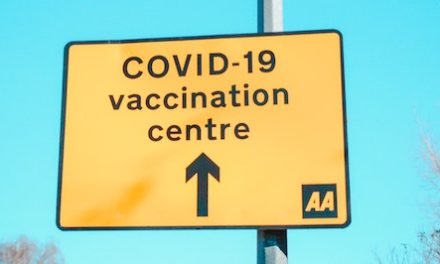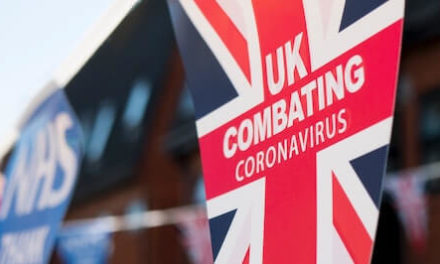Reducing the spread of this pandemic is now the current goal of the world. COVID-19 is the most infectious disease in recent years, and has killed millions of people, causing worldwide damage. Due to its rapid effect across the world, measures were rapidly set in motion to obtain a cure that will help decrease the number of deaths.
Living in Togo, a small country in Western Africa, I have seen how the Togolese government has struggled with rolling out vaccination programs due to several geopolitical and financial hurdles. Like most countries, Togo has been badly impacted by the pandemic, and the government has put in some measures that helped to mitigate the impact. According to the World Bank, some funds were collected in 2020 at the start of the pandemic to help ensure and provide a safe environment. Other measures included lockdowns, restriction of intercity movement, closing of land borders, and compulsory quarantining for travellers who entered the country by flight. These measures, however, did not include vaccination as the world was now waking up to vaccine rollout programs. In a way, managing the pandemic in Togo was more of a firefighting approach; it was more reactive than proactive, which is, under the prevailing circumstances, the best the government could do.
According to Wordometer, as of 18 August 2021, Togo has recorded 18,359 coronavirus cases, and 170 corresponding deaths. According to Our World in Data, as of 16 August, only 3.9% of Togolese have been vaccinated. Of this 3.9%, 1.9% have been fully vaccinated and the remaining 2% have been partially vaccinated. Togo has been a beneficiary of the COVAX programme, receiving 156,000 doses of the AstraZeneca coronavirus vaccine. Also, by 18 August 2021, Togo has been able to procure some 118,000 doses of the Johnson and Johnson vaccine through the African Vaccine Foundation. Though these efforts are commendable, it must be noted that, with a population of a little over 8 million people, the total percentage of people vaccinated and the rate of vaccination leave much to be desired. For this reason, though the country might want to enforce a mandatory vaccination programme, they are unable to do so. With the increasing rate of vaccine hesitancy in some countries, will the government of Togo succeed with a legal and mandatory vaccination agenda?
Other countries, like Bahrain, have responded to COVID in a different way, garnering strong support from some individuals. When the pandemic hit Bahrain, the country set down some rules, such as travel limitations, quarantine, shutting down all indoor areas except for essentials (including the grocery store, hospitals, pharmacies, and banks), visa restrictions, etc. Bahrain was not hesitant to bring in the vaccine, and it was the first country to allow vaccine appointments to be booked via mobile using an app.
In the USA, measures regarding COVID-19 were also taken but these new laws created chaos among the civilians. The dominant argument surrounded vaccination, with so-called “anti-vaxxer” groups forming to oppose the jabs. The government faced a lot of challenges to maintain peace between the nation as violence emerged following an announcement that the vaccine would be mandatory for many. Many people in the anti-vaccine groups don’t trust the vaccine due to the short period of time scientists used to develop it, although others are distrustful of vaccination practices more generally. They believe that they have a right to choose if they want to get the vaccine or not. Their doubt cannot be completely justified but, based on these three countries’ reactions, an idea of how vaccination is valued can be felt. Down the line, an in-depth argument will be elaborated to touch on various aspects of whether the vaccine should be mandatory from a legal point of view.
The World Responding to the Vaccine
Vaccination is a straightforward, safe, and effective technique to protect people from diseases. Around the end of 2020, scientists introduced the first COVID-19 vaccine to the world. It was created in under a year. Regularly, a normal vaccine may take five to ten years to be researched, developed and released to the public. This rapid turnaround for the coronavirus vaccine may give people the idea that the vaccine was rushed and not well researched. Moderna, CanSinoBiologics, Inovio, Sinovac, BioNTech Pfizer, AstraZeneca, Sinopharm, Beijing Institute, Novavax have all created a coronavirus vaccine. The most widely accepted vaccines currently are AstraZeneca, Pfizer, Sputnik, and Sinopharm.
Bahrain has accepted Pfizer, AstraZeneca, Sputnik, Sinopharm, and Johnson and Johnson. Bahrain was one of the first countries to accept Pfizer. In Bahrain, the vaccine is free of charge for both the first and second dose. The cost of the vaccine being covered by the country makes it very accessible to the citizens and residents. The citizens of Bahrain aren’t forced to take the vaccine, but there is mounting pressure from the government. The government has laid down some rules, meaning that that only vaccinated people over the age of 18 are allowed into any establishment other than grocery stores, hospitals, pharmacies, and banks. Once Bahrain introduced vaccines for children over the age of 12 and under 18, they applied that same rule that children over 12 not vaccinated could not enter any establishment other than grocery stores, hospitals, pharmacies, and banks. Now kids under the age of 12 were allowed but only when accompanied by an adult who is vaccinated. Being unvaccinated in Bahrain is very difficult because you cannot do much. Therefore, all these rules are not just for safety but also to make sure that everyone gets vaccinated. About 70% of the population is vaccinated in Bahrain.
South Africa is a country that has not responded well to the introduction of the vaccine, and has struggled to cope with the coronavirus in general. Compared to Bahrain, South Africa has been unable to obtain enough COVID-19 vaccination doses. The difficulties are exacerbated in very fragile and conflict-affected nations, where inadequate health facilities, limited access, security concerns, and misinformation make vaccination a difficult endeavour. South Africa finally turned their attention to the vaccine. In January 2021, the country reached an agreement with the Serum Institute of India to purchase the AstraZeneca vaccine for more than twice the price charged by the European Union. In February, the vaccine was put on hold because a study showed that AstraZeneca offered only minimal protection against the virus. Instead, South Africa turned to the Johnson and Johnson vaccine. In April, the Johnson and Johnson vaccine was suspended because six people had developed a rare blood clot after having the vaccine. On the 16th March, the U.S donated 2.8 million doses of the Pfizer vaccine to South Africa. In July, South Africa approved the Sinovac Biotech vaccine. At the time of writing, only 7.0% of South Africa’s population is vaccinated. In comparison to South Africa, Bahrain has responded tremendously to the COVID vaccine.
To avoid a new lockdown, the French government set a new law requiring health passes for access to restaurants, bars, trains, and planes from the beginning of August. This law aims to encourage the whole population to take the vaccine, which will decrease the spread of the virus in the country. According to an article written on the website of FRANCE 24 titled “French parliament approves requiring Covid pass for restaurants, travel starting in August”, the new law provoked the population into protest against the government. It also says that it is imperative that all workers in the healthcare sector are vaccinated; if they refuse, they will lose their jobs. These laws were set to be applied from 30 September 2021. Based on the reaction, lawmakers took into consideration the public reaction and delayed the implementation of these laws, which will now come into force on 15 November.
Something similar seems to be happening in Togo, whereby the government has launched vaccine passports to ensure all travellers are vaccinated before leaving the country. Funds provided by the World Bank helped Togo obtain a vaccine for the immunization of its nation. However, although they are in possession of funds, it is realistically not enough for them to follow the lead that the French government established regarding restaurants, bars and other open areas. Not every individual can access the vaccine in Togo simply because of the limited resources. According to an investigation conducted in Togo, the majority of the population have nothing against the idea of taking the vaccine, a sharp contrast to the US population’s reaction.
COVID-19 Vaccine and Human Rights
According to the Global Campus of Human rights, a mandatory vaccine influences some human rights but is necessary to decrease the spread of the virus. Anti-vaccine groups around the world fight for their voice to be heard, their choice to be accepted and their human rights to be respected. By refusing the vaccine, however, people continue to expose others, and no progress can be made. Some argue that, based on Article 8 of the European Convention on Human Rights, taking the vaccine must be based on the individual’s free and informed consent. However, by respecting the human right of one person who refuses to get vaccinated, we therefore violate another human right that regards the safety of others because of the exposure forced upon them. It cannot be the individual’s decision when it regards the entire population, and this has been taken into consideration in the European court, which led to its acceptance of making the vaccine mandatory.
Human rights cannot be fully supported as one of the reasons why the vaccine should not be mandatory. Let’s take the USA for example. They have active anti-vaccine groups that are revolting against taking the vaccine. They have strong doubts about the efficacy of the vaccine and are completely furious about the enforcement of it upon them. Doubt and human rights seem to be the motive to act like such, but the political issues can be the main factor triggering mistrust among them. By making the vaccine obligatory, the government aims to reduce the spread of the virus to promote a healthier and safer environment. During a crisis such as a pandemic, human rights are not considered when setting laws as decisions will be taken for the nation as a whole and not at an individual level. “Right to life”, “Right to protect others” that is what the government is focusing on as these are the absolute rights that must be regarded in times of crisis to reduce death and ensure people’s “Right to life” is not violated.
To conclude, the question still stands: should we enforce the vaccine on our population? The world suffered from the pandemic, which cost people’s lives, and careful measures were taken by the government to reduce the damage. The discussion above focuses more on the legal side by presenting the challenges that came from the introduction of the vaccine in different countries around the world. A personal touch was added with a brief share of how the two writers experienced the procedure of taking the vaccine in their respective countries, which are Togo and Bahrain. Due to the limited availability of vaccines and the lack of funds, the Togolese government could not opt for a mandatory vaccine. Based on their situation they clearly needed a large amount of vaccine available for them to make the uptake mandatory. Information was also added to showcase the connection between France’s COVID laws and the laws put in place in Togo. Having found that Togo adopted the civil law, article 66 was the only statement that could support the making of the vaccine mandatory, therefore this country did not have legal issues regarding the vaccinations. Their problem was much more about the bad economy of the country.
On the other side in Bahrain, rules were quickly set at the arrival of this virus and the vaccination process was taken seriously to protect everyone. Throughout this discussion on the legal challenges that countries faced regarding the vaccine, we discovered points that talked about the different laws put in place in a few countries like France, UK, Togo, USA, Bahrain and South Africa; the argument that the COVID-19 vaccine violates human rights; and the different approaches used by the countries regarding common law and civil law. At the end, the discoveries showed how debatable this question could be based on the different countries in which it is being treated. Every country had its own way of reacting during the pandemic as each of them had set laws to which the population had agreed and disagreed on bringing in chaos like in the USA. Leaders in countries around the world took into consideration personal belief, scientific reasons, religious belief and human right to a healthier life (The right to life) which shows the diversity in the response given after the introduction of the vaccine.




